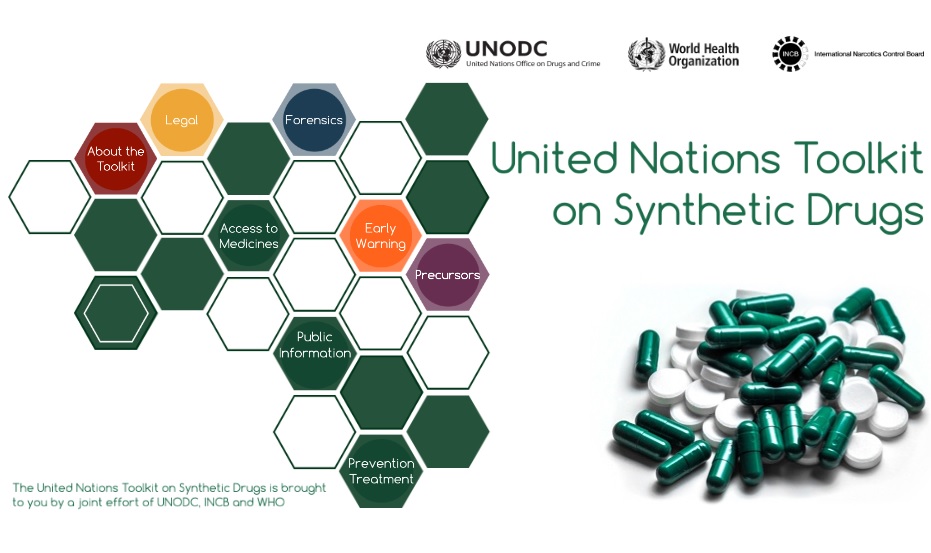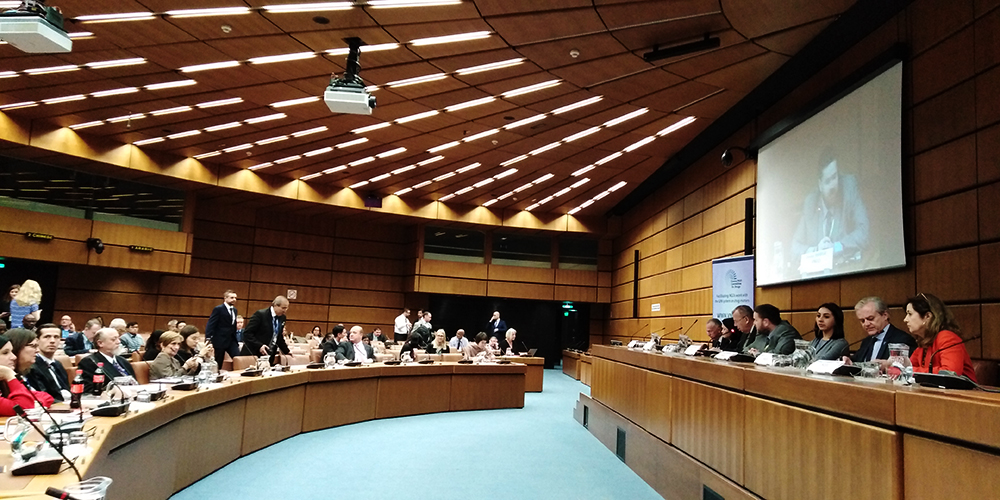The 62nd CND is running full steam on the third day. Besides plenary work with national delegations discussing and voting on formal decision, a variety of side events present interesting experiences, projects, results and challenges from around the globe.
Decriminalizing drug use and possession: A cross-national perspective on lessons learned and best practices
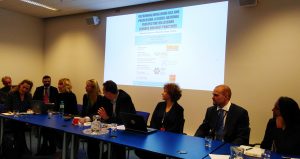 Organized by the Czech Republic, the Drug Policy Alliance, Release and the International Society for the Study of Drug Policy. Niamh Eastwood from Release (UK) reminded that UN agencies estimate that 83% of all drug offenses globally are related to possession and use of drugs. Tough sanctions don’t deter people from using drugs. Decriminalisation is not a new option – some countries use it since seventies of the last century. No country that recently decriminalised experiences increase in drug use! It is time to start exploring new models of decriminalisation. An argument against is that “we need to protect kids”, but the majority of those who are under criminal justice systems are young people up to 24 years of age. For young people, we should work on preventing long-term problematic drug use. Caitlin Hughes from the National Drugs and Alcohol Research Centre (Australia) presented results of several studies on decriminalisation. Barbara Janikova and Viktor Mravčik from the Czech National Monitoring Centre for Drugs and Addictions presented successes their country achieved adopting decriminalisation. After they criminalised drug use and possession in 1999, use of cannabis was growing; on contrary, when they decriminalised it in 2010, the cannabis use dropped significantly. There is a national consensus that there is benefit of decriminalisation for public health and general wellbeing. Same way, Dagflin Hessen Paust from the Norwegian Association for Safer Drug Policies (Norway) presented their change of approach, which included a large national debate. Finally, there is the proposal for decriminalisation in process now, evidence based and proposed by the ruling conservative party. Supply issue is the elephant in the room when discussing decriminalisation. Theshia Naidoo from the Drug Policy Alliance (USA) had a large discussion where the three main issues were: How to define the conduct that is decriminalised? Who are the optimal decision makers? Appropriate response to drug use and possession? Decriminalisation should be followed by large investment in social services to people who use drugs. Blog notes from this side event are available following this link>>>.
Organized by the Czech Republic, the Drug Policy Alliance, Release and the International Society for the Study of Drug Policy. Niamh Eastwood from Release (UK) reminded that UN agencies estimate that 83% of all drug offenses globally are related to possession and use of drugs. Tough sanctions don’t deter people from using drugs. Decriminalisation is not a new option – some countries use it since seventies of the last century. No country that recently decriminalised experiences increase in drug use! It is time to start exploring new models of decriminalisation. An argument against is that “we need to protect kids”, but the majority of those who are under criminal justice systems are young people up to 24 years of age. For young people, we should work on preventing long-term problematic drug use. Caitlin Hughes from the National Drugs and Alcohol Research Centre (Australia) presented results of several studies on decriminalisation. Barbara Janikova and Viktor Mravčik from the Czech National Monitoring Centre for Drugs and Addictions presented successes their country achieved adopting decriminalisation. After they criminalised drug use and possession in 1999, use of cannabis was growing; on contrary, when they decriminalised it in 2010, the cannabis use dropped significantly. There is a national consensus that there is benefit of decriminalisation for public health and general wellbeing. Same way, Dagflin Hessen Paust from the Norwegian Association for Safer Drug Policies (Norway) presented their change of approach, which included a large national debate. Finally, there is the proposal for decriminalisation in process now, evidence based and proposed by the ruling conservative party. Supply issue is the elephant in the room when discussing decriminalisation. Theshia Naidoo from the Drug Policy Alliance (USA) had a large discussion where the three main issues were: How to define the conduct that is decriminalised? Who are the optimal decision makers? Appropriate response to drug use and possession? Decriminalisation should be followed by large investment in social services to people who use drugs. Blog notes from this side event are available following this link>>>.
Aligning data collection with UNGASS implementation and the Sustainable Development Goals: Recommendations for a review of the Annual Report Questionnaire
 Organized by Canada, Mexico and Switzerland, IDPC, the Centre on Drug Policy Evaluation from Canada and the Global Drug Policy Observatory of Swansea University. Mexico prepared a matrix of 106 recommendations related to the UNGASS outcomes. EMCDDA representative claims that it is a very complex job to get data. On one side, they are specific and complex and on the other side there is a specific political aspect attached to them. Marie Nougier from IDPC presented the information on data collecting they included in the report “Taking stock: A decade of drug policy – A civil society shadow report” and expressed the willingness of IDPC and many civil society organisations to contribute to updating the Questionnaire.
Organized by Canada, Mexico and Switzerland, IDPC, the Centre on Drug Policy Evaluation from Canada and the Global Drug Policy Observatory of Swansea University. Mexico prepared a matrix of 106 recommendations related to the UNGASS outcomes. EMCDDA representative claims that it is a very complex job to get data. On one side, they are specific and complex and on the other side there is a specific political aspect attached to them. Marie Nougier from IDPC presented the information on data collecting they included in the report “Taking stock: A decade of drug policy – A civil society shadow report” and expressed the willingness of IDPC and many civil society organisations to contribute to updating the Questionnaire.
Women, incarceration and drug policy: Special vulnerabilities that call for focused responses
This side event gathered various representatives that agreed that women that are drug users face various obstacles and are much more vulnerable in prison settings and their human rights. Ms Ivana Radačić from OHCHR pointed out the fact that in general more women than men are serving drug use related sentences and that there are significant obstacles for them to be provided with fair trial. Project officer in Eurasian Harm Reduction Association Ms Eliza Kurčević presented the results of the research conducted by EHRA and said that “33,6% out of total number of prisoners in Russia are women, while 19.628 of them are sentenced for drug related offences. They face many challenges relate to human rights violations, family rights and other justice related problems.” These challenges remain one of the key priorities that should be addressed through both drugs and justice policies.
Launch of UNODC-VNGOC civil society guide on UNGASS outcome document and SDGs
 Organized by the Sweden, UNODC, Civil Society Team and the Vienna NGO Committee on Drugs. Jamie Bridge, Chairman of VNGOC, emphasised that more than 85% of the civil society organisations replied that they contributed to at least one SGD, while a quarter of them said they contributed to all 17 SGDs. HE Mikaela Ruth, the Ambassador of Sweden, presented the key features of the guide for NGOs “Working together: Drugs and the Sustainable Development Goals“. The UNODC representative Billy Batware underlined how the UNGASS outcome document and SDGs are connected and presented the structure and content of the guide. Dayana Vincent from Fourth Wave Foundation working in India, Wangari Kimemia from Médecins du monde France in Kenya and Heloisa Broggiato Mater from International Association for Hospice and Palliative Care about their workshops on Availability and Access to Opioid Medications in Latin American Countries presented their experiences in working on programmes related to sustainability development goals.
Organized by the Sweden, UNODC, Civil Society Team and the Vienna NGO Committee on Drugs. Jamie Bridge, Chairman of VNGOC, emphasised that more than 85% of the civil society organisations replied that they contributed to at least one SGD, while a quarter of them said they contributed to all 17 SGDs. HE Mikaela Ruth, the Ambassador of Sweden, presented the key features of the guide for NGOs “Working together: Drugs and the Sustainable Development Goals“. The UNODC representative Billy Batware underlined how the UNGASS outcome document and SDGs are connected and presented the structure and content of the guide. Dayana Vincent from Fourth Wave Foundation working in India, Wangari Kimemia from Médecins du monde France in Kenya and Heloisa Broggiato Mater from International Association for Hospice and Palliative Care about their workshops on Availability and Access to Opioid Medications in Latin American Countries presented their experiences in working on programmes related to sustainability development goals.

Other events
 The Vienna NGO Committee on Drugs held an Informal Dialogue with the UNODC Executive Director Yury Fedotov. NGOs had an opportunity to propose questions and 11 of them were selected for Mr Fedotov to reply to. Participants of the dialogue touch upon topics like prevention, treatment and rehabilitation, alternative development, healthcare, opioid crisis, prevalence of drug use, Listen first and Strong families programmes and research and analysing new trends. One of the questions was asked by Janko Belin, about if UNODC have programmes related to drugs and migrants.
The Vienna NGO Committee on Drugs held an Informal Dialogue with the UNODC Executive Director Yury Fedotov. NGOs had an opportunity to propose questions and 11 of them were selected for Mr Fedotov to reply to. Participants of the dialogue touch upon topics like prevention, treatment and rehabilitation, alternative development, healthcare, opioid crisis, prevalence of drug use, Listen first and Strong families programmes and research and analysing new trends. One of the questions was asked by Janko Belin, about if UNODC have programmes related to drugs and migrants.
Another Informal Dialogue was held with with the INCB President Viroj Sumyai. Blog notes from this dialogue are available following this link>>>.
 is the independent, quasi-judicial body charged with promoting and monitoring Government compliance with the three international drug control conventions.
is the independent, quasi-judicial body charged with promoting and monitoring Government compliance with the three international drug control conventions.


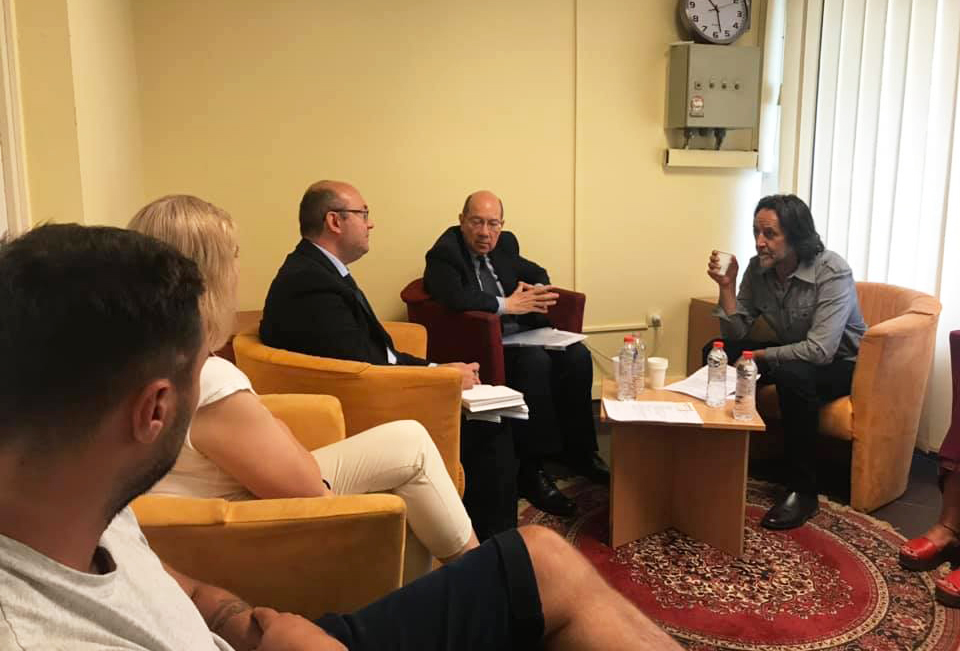
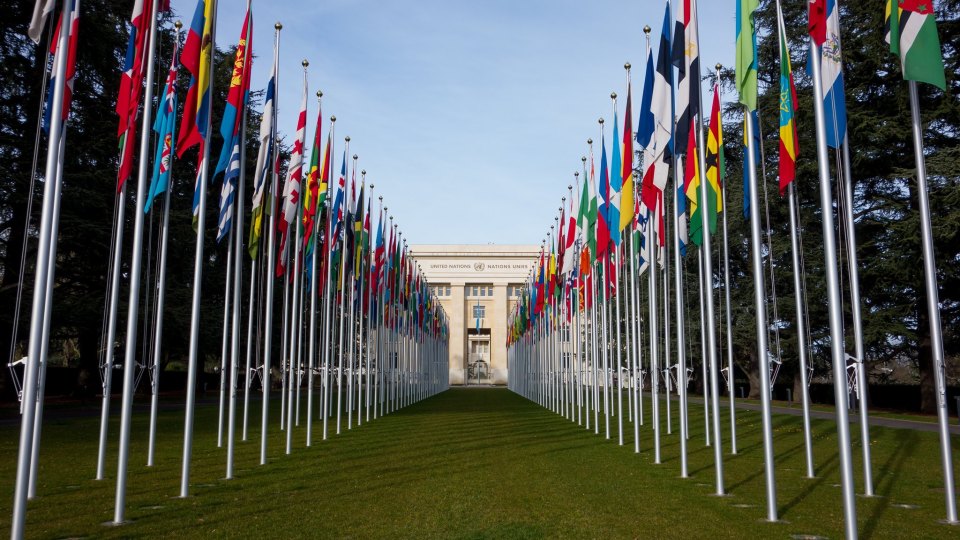
 The United Nations
The United Nations 